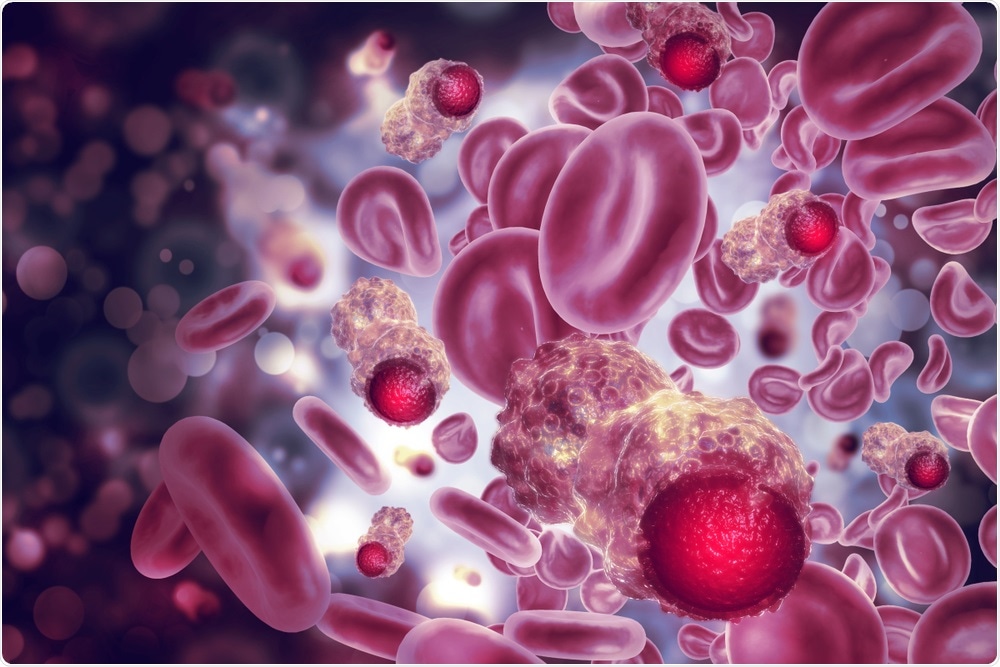According to a recent study performed by a team of researchers from Columbia University Vagelos College of Physicians and Surgeons, flaws in the way chromosomes are packed into antibody-producing B-cells seem to play a key role in the development of B-cell-related blood cancers.

Blood Cancer. Image Credit: crystal light/Shutterstock.com
The study results may lead to novel biomarkers for estimating the onset of B-cell-related blood cancers and a new type of cancer therapies that correct or prevent adverse changes in genome architecture.
The research work was published online in the Nature Genetics journal on February 1st, 2021.
Immune cells, known as B cells, produce antibodies through a series of carefully regulated rearrangements of chromosomes and “good” mutations that enable the cell to generate a wide variety of different antibodies.
Although these changes are essential for generating the vast diversity of antibodies, there is a risk that 'bad' mutations will occur and lead to B cell-derived cancers.”
Uttiya Basu, PhD, Study Leader and Professor, Microbiology & Immunology, Vagelos College of Physicians and Surgeons, Columbia University
Basu’s latest research work reveals that a protein named DIS3 is essential to preserve the genomic architecture and prevent unregulated chromosome rearrangements that have the ability to trigger cancer.
Such recent analyses with mice demonstrate that B cells not only become destabilized but also have more adverse chromosomal rearrangements. These cells are also less capable of producing specific antibodies in the absence of the DIS3 protein.
The research also shows that the DIS3 protein stabilizes chromosomes by inhibiting the accumulation of non-coding RNAs—that is, RNAs that do not code for proteins.
The massive accumulation of these RNAs perturbs the way the genome is packed in the nucleus and leaves the genome vulnerable to DNA translocations.”
Uttiya Basu, PhD, Study Leader and Professor, Microbiology & Immunology, Vagelos College of Physicians and Surgeons, Columbia University
Since DIS3 mutations are widespread in individuals with multiple myeloma—a type of B-cell-related blood cancer—the research work may explain why such mutations are implicated in the disease.
It’s possible that multiple myeloma treatment could require therapeutic interventions that prevent RNA accumulation and its effect on genome architecture.”
Uttiya Basu, PhD, Study Leader and Professor, Microbiology & Immunology, Vagelos College of Physicians and Surgeons, Columbia University
Additional research works will explore how the changes in genome architecture could be utilized to estimate the onset of different B-cell malignancies, which, at times, begin as comparatively benign conditions.
The new study also highlights the role of genomic architecture maintenance in cancer prevention and the role of non-coding RNA in normal antibody production.
Source:
Journal reference:
Laffleur, B., et al. (2021) Noncoding RNA processing by DIS3 regulates chromosomal architecture and somatic hypermutation in B cells. Nature Genetics. doi.org/10.1038/s41588-020-00772-0.